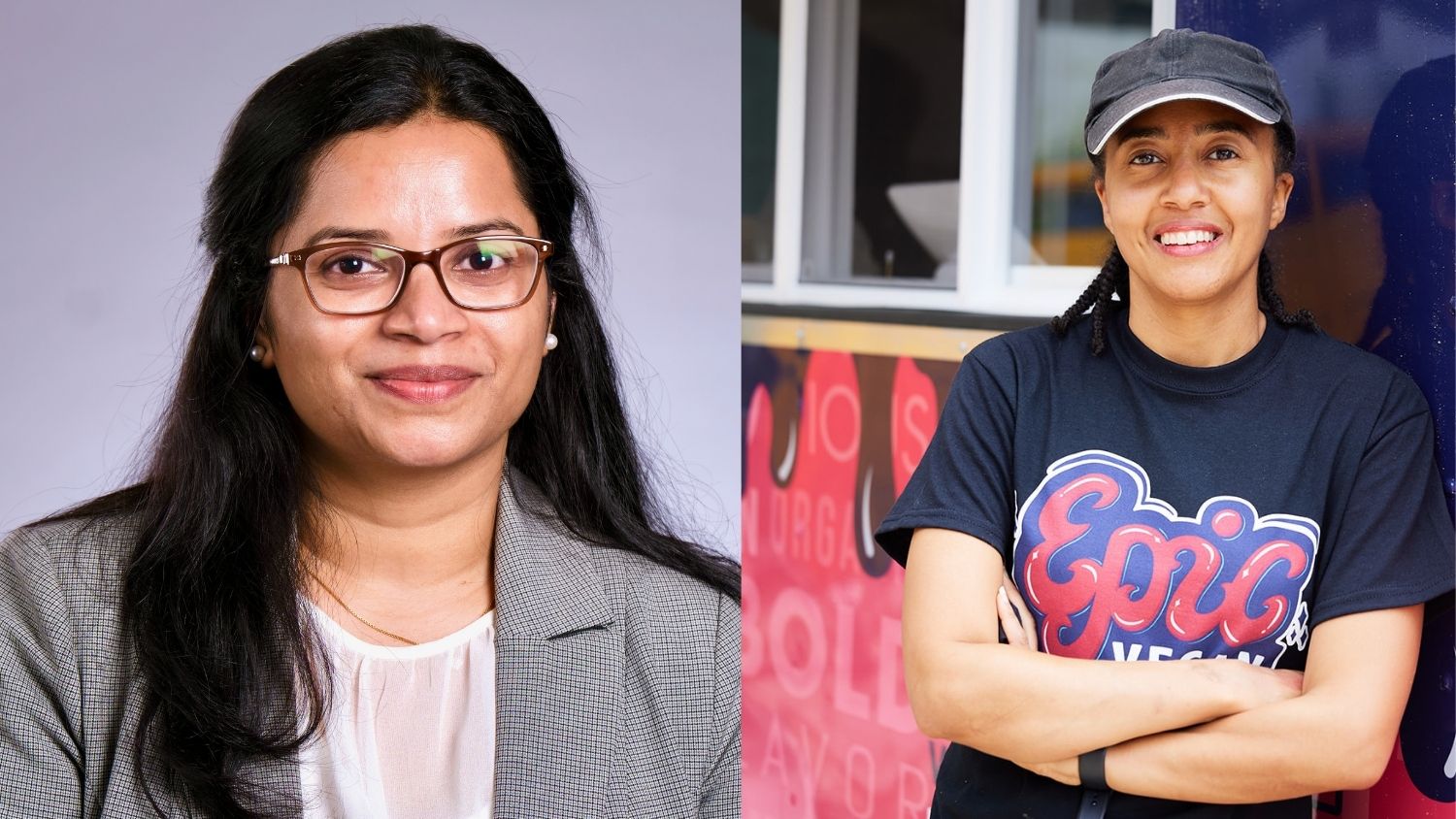How an MBA Practicum Project Benefited Students and Local Businesses
This summer course instructor Chris Hitch, set out to have his students assist organizations that might be struggling because of COVID-19’s impacts by developing business plans for them at no charge. Not only did their practicum project benefit local businesses, but students were able to directly apply many tools and metrics in a real-world scenario.

In her capstone this summer for the Jenkins MBA course Creating Value in Organizations, Swapna Sasikumar created extra value from the project for herself. Not only did she strengthen research skills she had built in class to help a local business during the pandemic, she learned about a diet without animal products: vegan cuisine.
Swapna developed a business plan for Durham-based Epic Vegan Food Truck over a couple of weeks with classmate Kisha Fairchild. “The tools we used for this project were all from the MBA program,” Swapna says.
“We had direct application of many tools and metrics in a real-world scenario…And in doing research for this, we found out a lot about benefits of being vegan and small steps we can take toward sustainability.”
The capstone is intended to benefit companies and students. Course instructor Chris Hitch, lecturer in Management, Innovation and Entrepreneurship, wanted students to assist organizations that might be struggling because of COVID-19’s impacts by developing business plans for them at no charge.
“It accelerated this whole idea of, if we’re going to do a capstone activity, let’s help businesses so terribly affected by the pandemic find ways to generate more revenue, survive and thrive. It’s the idea of paying it forward,” Hitch says.
“We don’t have financial capital, but we do have intellectual capital to use…to help these organizations make a pandemic pivot.”
The capstone, which also opens up networking and career options for students, launched in summer 2020 and is offered again this fall.
Since last year, students have assisted about 90 small businesses and nonprofits around North Carolina, including those run by women, Black entrepreneurs and veterans: coffee companies, an independent hotel, family-owned breweries and others.
Students choose the business they want to help and share their 12-month strategic plan with the organization. Theydevelop expertise in strategy, innovation and entrepreneurship as they analyze macro trends, what competitors are doing, how to meet customers’ needs, and other metrics. The aim is a plan “that gives the most value for the time, treasure and talent the organization has,” Hitch says. “We’re trying to transform research into results.”
The capstones have yielded results for organizations.
Students who worked with the Raleigh branch of the Food Bank of Central & Eastern North Carolina this spring took a holistic approach in studying affordable housing, job training, transportation and a centralized service hub to make recommendations.
The first phase of the food bank’s new strategic plan will include “an economic empowerment initiative. Information gleaned from student presentations will be used to inform that effort,” says Marlowe Foster, the organization’s senior vice president of development and business strategy. “Chris’s MBA class developed creative and innovative approaches to addressing food insecurity.”
Swapna’s capstone produced useful results, too.

She and her classmate recommended Epic Vegan Food Truck owner Kibri Everett improve the business’s website to clarify the schedule and menu, enhance sustainability through composting and eco-friendly packaging, consider a lower-emission vehicle, and expand to offer catering for events. “If we can really help her and help the business grow in some way, that will be the most rewarding part of the capstone,” says Swapna, a Cisco Systems customer delivery manager at Research Triangle Park.
Kibri will use the strategic plan to assess risks to her new business, how to differentiate and maximize its value, and goals for the next year. She’s an environmental data scientist at RTI International in Research Triangle Park and an NC State graduate with an environmental science degree.
“The most valuable thing about their strategic plan is to think about catering,” Kibri says.
“That offers another revenue stream, which equates to a bigger bottom line and also provides more exposure for the business.”
- Categories:


